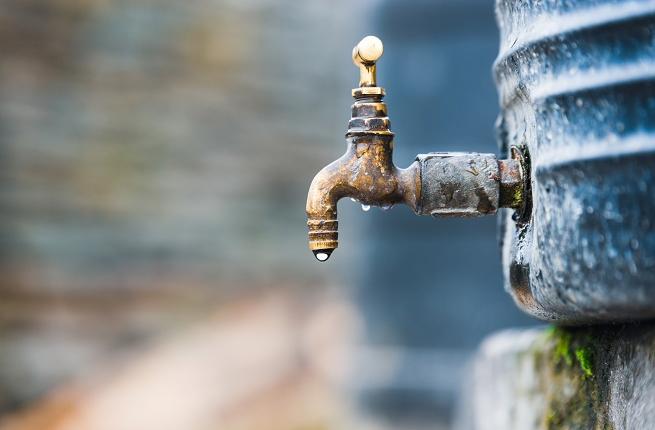The story of perennial water shortage across most states of the federation is extremely lamentable and sad; yet inexcusable. It is unfortunate that water, which is a basic necessity of life, remains inaccessible to majority of Nigerians. For example, a resident of Awka said the last time water ran through the public water system in the state was in 2000 during the administration of Governor Chinwoke Mbadinuju. With a population of over 20 million residents, it is estimated that less than 30 per cent of the people in Lagos State have access to potable water supply. It’s incredible that scarcity of potable water remains acute even in Lokoja, capital of the acclaimed ‘Confluence State’ where water is naturally in abundance.
Poor supply of potable water in states illustrates their collective failure to actualize the targets set under the UN Water for Life Decade, 2005-2015. Water vendors and their trucks have, for many years, been common sights on the streets of many state capitals in Nigeria. While residents in urban and sub-urban centres walk long distances to reach the nearest borehole, others especially in rural areas drink from the same stream or pond with animals.
A recent investigation conducted by the Daily Trust revealed that various state governments annually expend huge resources on the water sector but with no commensurate outcome in the public supply of potable water. Between 2021 and 2022, for instance, Kano State Government budgeted over N12 billion for the water ministry. In its 2022 budget, Anambra State appropriated N2.1bn for the water ministry. While Borno State Government budgeted about N18bn for the sector between 2020 and 2021, the Plateau State Government, in 2022, budgeted about N3bn for water, sanitation and energy.
For the 2022 fiscal year, Kaduna State Government appropriated N4.7bn for the water sector. Between 2019 and 2021, Ondo State Government budgeted over N2bn for the water sector. In 2017, Katsina State Government reportedly spent about N17bn on the water sector. This is all aside of strategic interventions states received from international donor agencies such as the United States Agency for International Development (USAID). According to SDGs statistics, “water scarcity globally affects more than 40 per cent of the global population; and this is projected to rise”.
Commenting on the perennial scarcity of potable water across the states, the Minister of Water Resources, Suleiman Adamu, blamed the situation on the refusal of states to plan for their growing populations, adding that “the ministry was not mandated to run water supply schemes, treat water and reticulate it”.
Perennial water scarcity in states is, undoubtedly, a consequence of long years of neglect of the water sector by state governments. Water treatment and distribution plants as well as storage facilities were neither expanded to meet water needs of an ever-growing population nor were they maintained. Instead, they were abandoned until they became unserviceable. The situation is further compounded by perpetual power outages. Long hours of electricity supply, which has been very unstable in many parts of the country, are critical to the operations of water treatment and distribution plants.
The dimension, which corruption as a norm has taken in Nigeria, is one plausible basis to insinuate conceivable financial improprieties in the annual budget claims of state governments on water sector. For example, the cost of pumping machines, pipes and other equipment could be inflated. Procurement laws too are, as usual, open to abuse by civil servants in the purchase of water treatment chemicals.
The negative public response has incidentally contributed to the abysmal state of public water supply schemes. States’ water corporations or boards decry poor revenue generation from water consumers. In 2020, the Managing Director of Bauchi State Water Corporation said, “We hardly generate N3 million and our monthly expenditure in the procurement of water treatment chemicals, maintenance and other services is N85 million.”
While it is untenable for people to expect government to supply water for free, consumers’ response to bills is likely to increase if the supply is regular. The deployment of pre-paid meters would not only help to reduce suspicious human interactions in the billing system but will further check revenue leakages, and thus, guarantee sustainability in water supply.
Apart from being a source of infectious diseases, poor access to potable water has led to the proliferation of boreholes; almost to a level of threat to underground water. Failure to report damage on water pipes leads to waste of resources just as it denies others access to potable water.
While we lament how Nigeria yet belongs to the global population in which one in three people do not have access to safe drinking water, there’s need for state governments to develop strategic plans for their public water supply schemes including infrastructural provision, expansion and maintenance. As a public utility, states are encouraged to partner with the private sector to invest in the water sector. The billions of naira annually appropriated for water by states must be seen to deliver running taps. Water is life.

 Join Daily Trust WhatsApp Community For Quick Access To News and Happenings Around You.
Join Daily Trust WhatsApp Community For Quick Access To News and Happenings Around You.


